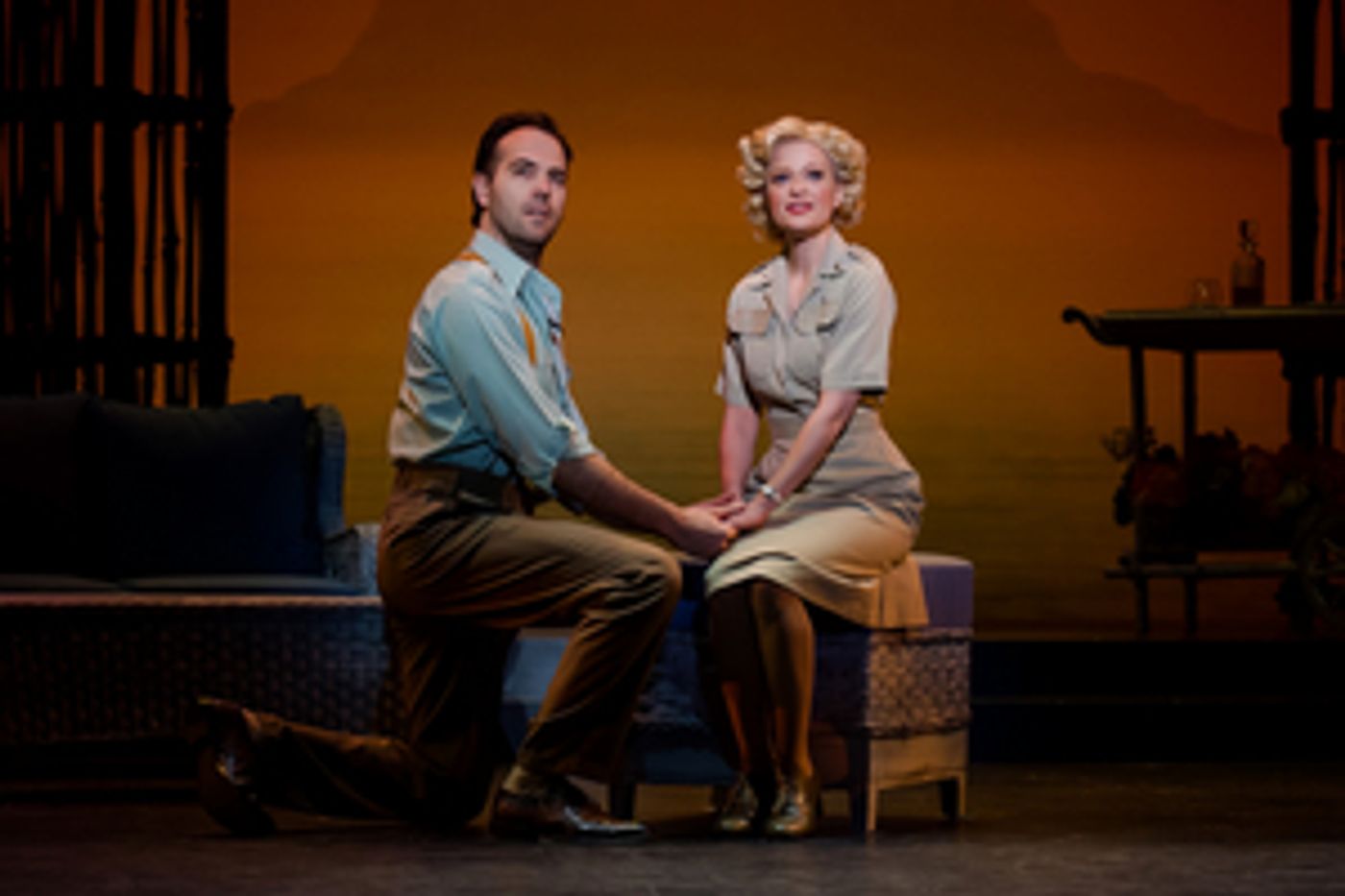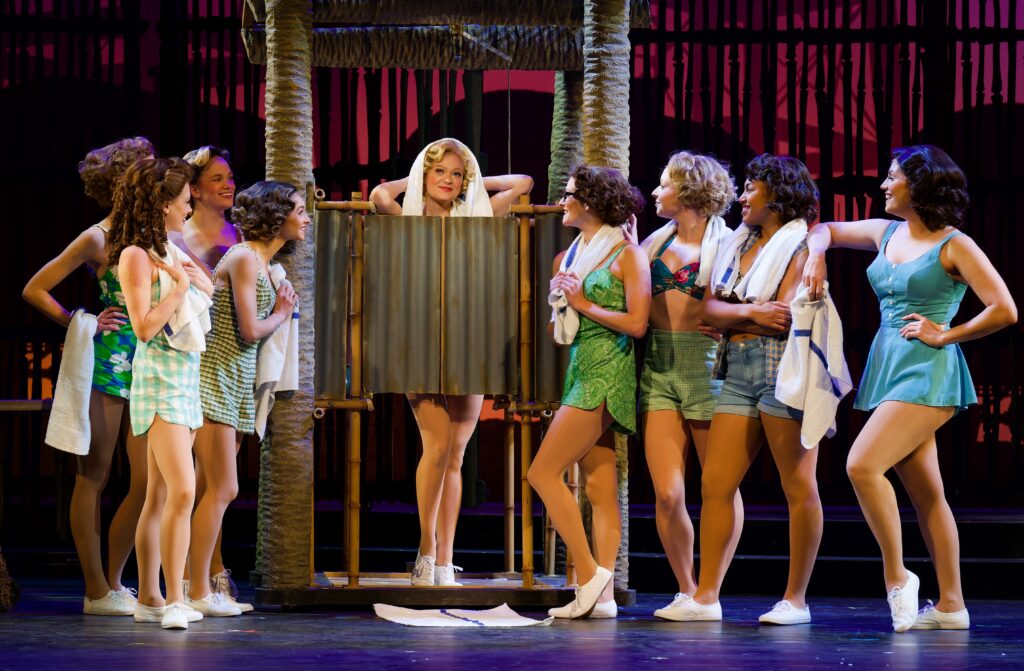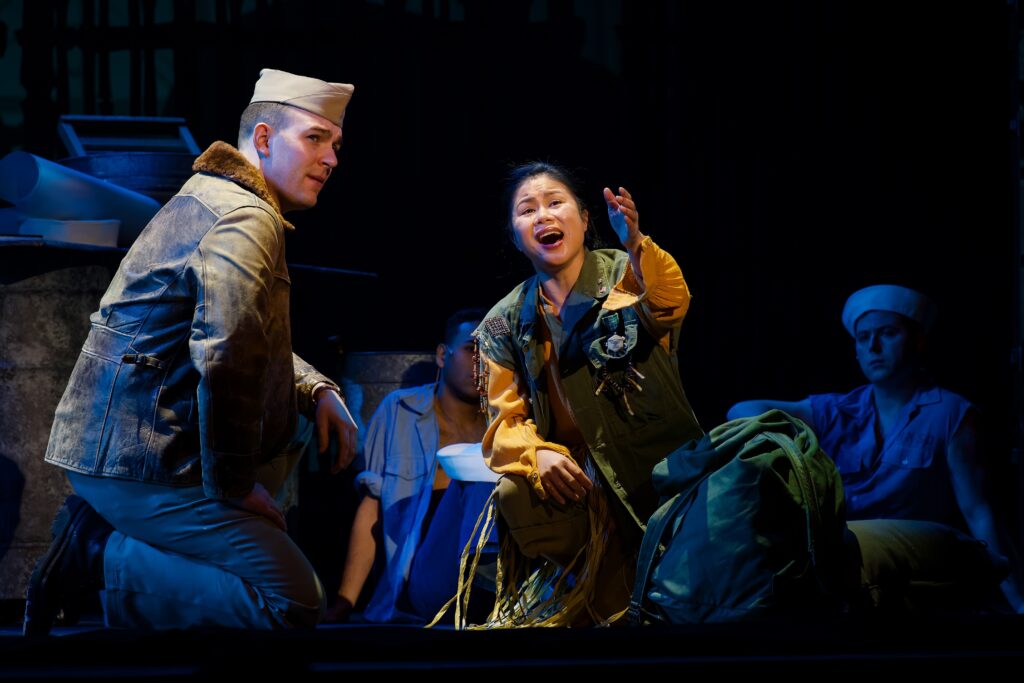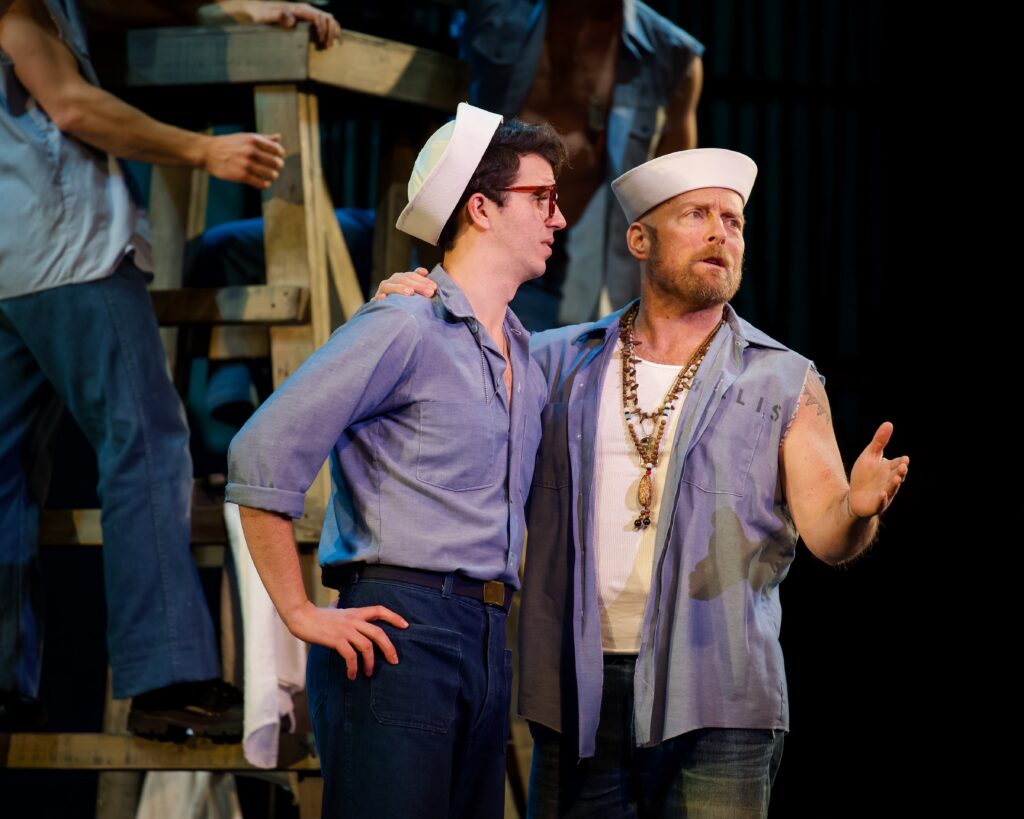Review: SOUTH PACIFIC at Fred Kavli Theatre
National Tour Production Shows Its Age But Is Still An Enchanted Evening

America was a different place in 1949 when Rodgers and Hammerstein's South Pacific made its debut. World War II was still fresh in the minds of audiences but Oscar Hammerstein II, who wrote the lyrics and the libretto for the musical, wanted to send a strong, progressive message on racism in America, especially with regard to miscegenation. Despite Hammerstein's best efforts, South Pacific contains material that in itself can be deemed as racist, especially in its depiction of Asians and Pacific Islanders. As a result, American Theatre Guild, in preparation for the show's current national tour, gave the Pulitzer Prize winning musical a fresh coat of paint, scrubbing it of some questionable stereotypes and offensive dialog. The result is not only faithful to the intent of the creators, but doesn't detract from Hammerstein's central message of tolerance. South Pacific plays through this weekend at the Fred Kavli Theatre at the Thousand Oaks Civic Arts Plaza.
In an extensive program note, the producers explain the changes made in the show, aware of its history of "Orientalizing" native characters, with special attention paid to Bloody Mary, the brassy Tonkinese vendor of grass skirts and other exotic "souvenirs," and her beautiful daughter Liat. Mary's speech, which consisted of stereotypical broken English (portrayed in a way similar to that of Native Americans in the old "B" westerns) has been smoothed over and her character is now more protective of her daughter than opportunistic. Liat, in turn, is presented more as a willing adult than as a child who becomes a Jamestown bride to whomever Mary can coerce into removing her from the island.

Maris McCulley washes that man right outa her hair in a scene from "South Pacific" (photo by Felix Rodriguez)
ATG's production features two outstanding leads in Maris McCulley as perky Navy Ensign Nellie Forbush and Jared Bybee as the aristocratic expatriate French planter Emile de Becque. Both actors evoke the spirit of the originators of their roles, Mary Martin and Ezio Pinza, and perform their parts splendidly. McCulley sings all of her songs with ease and, at times, even sounds like Martin on songs like "Cockeyed Optimist" and "A Wonderful Guy," the latter punctuated by an exuberant cartwheel, a maneuver that had been abandoned in the original version after Martin famously tumbled into the orchestra pit, knocking out orchestrator Trude Rittman.
Bybee, who has recently appeared in operas such as Carmen and Don Giovanni, has a powerful bass baritone voice that was magical in his rendering of two of the musical's romantic anthems, "Some Enchanted Evening" and "This Nearly Was Mine."
As good as McCulley and Bybee are individually, as romantic partners they never really seem to click in this version. Part of the problem is that we don't see that "crowded room" where they first catch each other's eye; all that has already happened by the time the play starts. But we never do feel the deep passion that these characters feel for each other, robbing the show of its essence.
Similarly, the secondary romance between Liat and American Marine lieutenant Joe Cable, also fizzles. Liat, played by Yuka Notsuka, is given very little to do and nearly no dialog while Cable is played by a miscast Woody Minshew, who appears to be old enough to be Liat's father. Cable is supposed to be a lean straight arrow, young, ambitious, and devoted to duty. Minshew's Cable falls apart almost immediately upon entering the stage and by the time he staggers into Act II, recovering from a bout with malaria, he is a disheveled mess. Cable's hypnotic infatuation with Liat, which is enhanced by the exotic locale and whatever romantic spell Bloody Mary may have cast over him, instead appears to be a lascivious lunge for a high school exchange student by a debauched dad.
To his credit, Minshew has a fine singing voice and does a great job on the show's third romantic theme, "Younger Than Springtime," in addition to performing the self-loathing "You've Got to Be Carefully Taught," the song about learned racism that Hammerstein fought tooth and nail to be kept in the show, even after Southern theater companies threatened to cancel runs of the musical if it were included in the score. As a footnote, it was nice to hear a previously discarded verse of the song reinstated, as sung by deBecque.
Probably the best performance in the show is turned in by the delightful Catrina Teruel Clark as Bloody Mary, who sings well on her solos, the captivating "Bali H'ai" and the cheerful "Happy Talk," and has a great sense of comic timing. Her clipped English is perfectly believable without resorting to the stilted language usually attributed to Asian roles in Broadway.

Woody Minshew (Cable) and Catrina Teruel Clark (Bloody Mary) (photo by Felix Rodriguez)
Also restored to this version was Cable's "My Girl Back Home," which was cut before the first Broadway production but included as a duet with Nellie in the 1958 film and the 2002 London stage revival.

T.J. Lamando (Professor) and Guy Noland (Luther Billis) (photo by Felix Rodriguez)
Guy Noland played the comic relief role of the enterprising Seabee Luther Billis, reminiscent of Phil Silvers' larcenous Sgt. Bilko with an East Coast-tinged accent that reminds one of Cliff Clavin, the lovable loser mailman from the TV sitcom Cheers. Noland does a fine job balancing Billis' shy infatuation with Nellie and his macho bravado in front of his fellow Seabees.
Visually, the stage is cluttered with too many distractions; multiple moving flats meant to represent bamboo curtains, numerous projections of battleships and navy vehicle traffic, and strange billows of smoke that seem to be coming from nowhere for no reason. What we don't get from the set design is the sense of the dense tropics that enhances the exotic mystery of the island of Bali H'ai, seen as a shadowy silhouette in the opening scene.
It was surprising to find that Matthew Lowy's lush orchestration was effected by a limited musical contingent of just ten musicians, expertly led by Eddie Carney.
As flawed as this production is, South Pacific is rarely staged anymore; not many shows from the 1940s are, especially in national tours, so strap on your cocoanut bra and head over to the Kavli to catch one of the finest scores in Broadway history.
************************
South Pacific plays through March 27 at the Fred Kavli Theatre in the Thousand Oaks Civic Arts Plaza. For dates and showtimes, see the VC On Stage Calendar.
Reader Reviews
Videos

